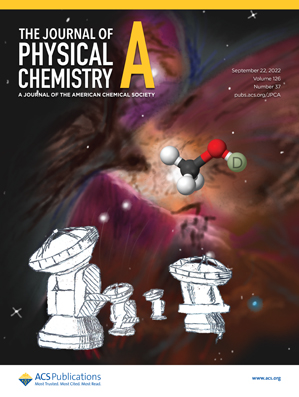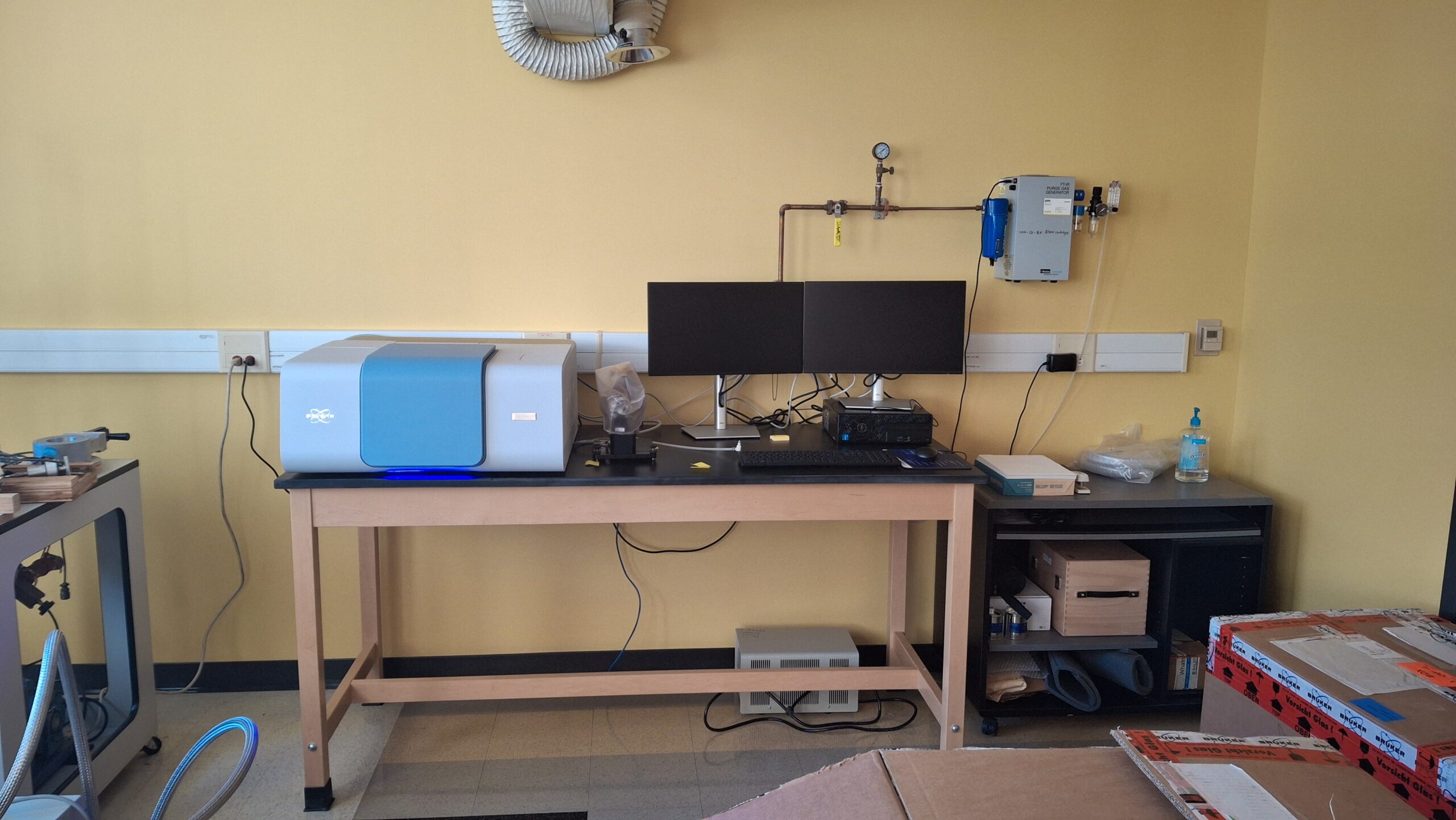Observations of molecules in space
In the Wilkins group, we use radio telescopes to observe how molecules are distributed in star-forming regions to try to understand the relationship between molecular abundances and astrophysical environment. During her PhD work, Dr. Wilkins saw surprising patterns when looking at the relationship between CH3OD column density and rotational temperature in the Orion Kleinmann-Low (Orion KL) nebula. At Dickinson, she is excited to work with students to look at the distribution of different isotopologues in star-forming regions to understand the chemical heritage of different molecules through their isotopic substitutions.
Students doing observational work in the group work with data from the Atacama Large Millimeter/submillimeter Array, or ALMA, a premier radio telescope in Chile. They also use (and develop their own) custom computer code written in Python (and many group members learn computer coding on the job!).

Cosmic ice experiments
We are also building a cosmic ice experiment to investigate how photochemical and thermal processes alter primitive ices in the interstellar medium (ISM). Relatively complex organics form in and from processed ices in space, and that chemistry affects the composition of gases and solids in interstellar and (proto)planetary environments. Our lab space in Rector/Stuart 1105 is ready to welcome some new equipment so we can study these processes and disentangle the chemical pathways that led to the chemistry of the solar system as we know it.
So far, we have set up a new Bruker spectrometer that will allow us to measure the mid-infrared spectrum of cosmic ice samples and monitor how they change during UV photolysis. We are also building an ultrahigh vacuum chamber setup and have been testing vacuum pumps and other instruments while preparing to buy additional equipment.

Join the Wilkins group!
Thank you for your interest in joining the Wilkins Astrochemistry Group at Dickinson! We use both observations and experimental work to disentangle the chemistry of the cosmos. Explore different research opportunities below or reach out to Prof. Wilkins to chat about how to get involved!
Summer 2026 – Research Assistant – High-Resolution Imaging of Deuterated Methanol in Orion KL
Our group was granted funding from the National Radio Astronomy Observatory (NRAO) through an NRAO Student Observing Support (SOS) Award to investigate high-resolution chemical imaging of deuterated methanol in the Orion Kleinmann-Low (Orion KL) nebula. This award is funding a summer student (Boriana Yotzova ’26) in 2025 and is expected to fund another student in 2026.
The interest form for Summer 2026 will open 15 December 2025. Fill out the interest form by 11:59 p.m. on 1 March 2026!
CHEM 560 – Semester Research Student – Topics Vary
Students interested in doing research for course credit during a semester should reach out to Prof. Wilkins in advance of course request period. A full credit of research requires eight (8) hours of committed effort each week, whereas a half credit requires four (4).
Dana Research Assistantships – Semester Research
The Dana Research Assistantship program provides funding for Dickinson student research assistantships for a semester or the full academic year. Applications are due early, so interested students are encouraged to reach out at least one semester in advance (e.g., students interested in doing research in the Spring semester should reach out at the beginning of the Fall semester to discuss potential opportunities).
Student-Faculty Collaborative Research (SFR) opportunities – Summer Research
Dickinson’s Student-Faculty Collaborative Research (SFR) program provides funding and housing for Dickinson students to conduct research full-time for eight weeks over the summer. Applications are typically due in February, so interested students are encouraged to reach out in the fall semester to discuss potential opportunities.